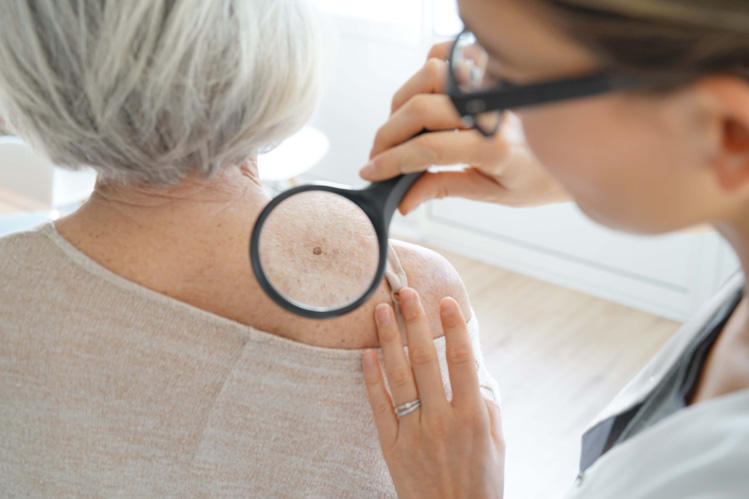Mohs Surgical Procedure Explained: A Key Procedure in Dermatology for Taking Care Of Skin Cancer Efficiently
In the world of dermatology, Mohs surgical treatment stands as an essential treatment for combating skin cancer, particularly basic cell and squamous cell carcinoma. This elaborate surgical approach, conceived by Dr. dermatologist. Frederic E. Mohs, focuses on the accurate excision of cancerous skin layers, leaving healthy and balanced tissue untouched. What exactly makes Mohs surgery so effective and just how does it add to positive client end results? As we delve deeper into the process, its advantages, and prospective complications, the true value of this treatment comes to be progressively obvious.
Understanding the Essentials of Mohs Surgical Procedure
Although it could sound complicated, Mohs surgery is an exact medical technique utilized mostly to treat skin cancer cells. The primary aim of Mohs surgical treatment is to get rid of all cancer cells while sparing as much healthy and balanced tissue as possible. Its accuracy and high success rate have actually made Mohs surgical treatment a keystone in dermatology, supplying hope to people worldwide.

The Procedure: Step-by-Step Break Down of Mohs Surgical Treatment
While Mohs surgery could seem difficult, recognizing the detailed procedure can help demystify the procedure. The treatment begins with the doctor removing a slim layer of noticeable cancerous skin. This layer is after that meticulously analyzed under a microscope for cancer cells. If cancer cells are identified, the specialist gets rid of an additional layer of skin and the procedure is duplicated. This cycle continues up until no more cancer cells are located, making certain the full elimination of cancer while maintaining as much healthy skin as feasible. The wound is then closed using stitches, a skin graft, or it may be left to recover normally. Postoperative treatment is important to advertise recovery and display for any indicators of reappearance.
The Advantages of Mohs Surgery in Skin Cancer Cells Treatment
An excellent number of people have actually discovered the unique advantages of Mohs surgical procedure in their fight versus skin cancer. Related to for its precision, this strategy targets cancerous cells while protecting surrounding healthy tissue, causing minimal scarring. Its high precision minimizes the possibility of cancer recurrence, providing individuals with tranquility of mind. The procedure is my blog typically performed on an outpatient basis under regional anesthesia, making it much less exhausting on the body than more invasive surgical treatments. Better, as it entails immediate tiny exam of the removed tissue, it ensures full cancer removal in a solitary see. Therefore, it removes the need for several surgical procedures, saving time and decreasing tension for clients. Mohs surgery offers a premium choice for reliable skin cancer treatment.
Possible Risks and Complications Connected With Mohs Surgical Procedure
In spite of its countless benefits, Mohs surgical treatment is not without possible threats and difficulties. Like all medical procedures, it brings a threat of infection, bleeding, and a negative reaction to anesthetic. In unusual situations, patients may experience nerve damage, bring about numbness or weakness in the area of surgical procedure. There's additionally the possibility of a recurrence or spread of skin cancer cells, specifically if all malignant cells were not entirely removed during the procedure. Scarring is an additional issue, as it can be noticeable relying on the dimension and place of the cured area. The psychological influence of a skin cancer diagnosis and succeeding surgery must not be undervalued, as it can lead to anxiety and clinical depression in some people.
Preparing for and Recouping From Mohs Surgical Treatment: What to Expect
To guarantee the most continue reading this effective possible outcome from Mohs surgery, patients require to sufficiently prepare for the procedure and recognize what to anticipate during recuperation. Preparation normally includes a detailed conversation with the doctor concerning the client's clinical history, current medicines, and possible allergies. Some medications might require to be stopped prior to the surgical procedure to reduce blood loss. Postoperative care is critical for successful recuperation. Patients may experience moderate discomfort, soreness, or swelling, which can be taken care of with recommended medicines. They are suggested to rest, stay clear of laborious tasks, and keep the surgical website tidy and completely dry. Regular follow-ups are required to keep an eye on healing and detect any type of problems early. The secret to recovery holds your horses' adherence to their health care copyright's directions.
Final thought
